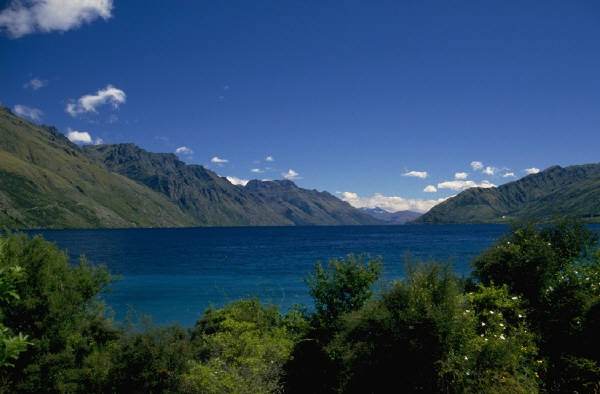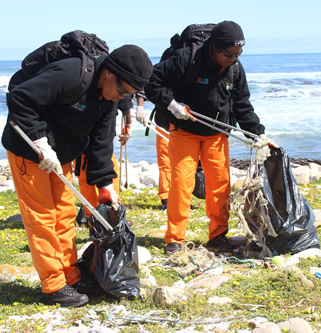2016 World Oceans Day
Introduction and background
World Oceans Day was first introduced in 1992 to raise awareness of the crucial role the sea plays as sources of food, oxygen and medicine. It was officially recognised by the United Nations (UN) in 2008 and is observed on June 8 each year. World Ocean Day is celebrated each year to highlight the importance of the ocean in our daily lives. It is one of the lungs of our planet, providing most of the oxygen we breathe. The Day provides an opportunity to raise awareness of the impacts of human actions on the ocean; and to mobilise and unite the world behind a project of sustainable global ocean management.
Aims and objectives
The oceans are essential to food security and the health and survival of all forms of life, power our climate and are a critical part of the biosphere. The official designation of World Oceans Day is an opportunity to raise global awareness of the current challenges faced by the international community in connection with the oceans.
World Oceans Day helps you make a difference in your life, community, and world by taking action to protect our ocean for present and future generations. Despite the huge challenges facing the world’s ocean, by working together we can achieve a healthy ocean that provides for the billions of humans, plants and animals which depend on it every day.
In the past few decades, the threats from pollution, overfishing and other forms of exploitation to marine habitats have increased dramatically. Around 3/4th of our planet is water. But with recent menace of global warming, there's a threat to even the largest natural resource on earth, i.e. water. And with that, there's a major hazard to the entire galaxy of marine life which thrives in the ocean. Add to that the frantic emptying of many water bodies to make space for industrial establishments. All this is a major threat to the ocean life which in turn will lead to a loss of equilibrium in the natural order of things
Why do we celebrate World Oceans Day?
- To remind everyone of the major part the ocean has in everyday life. They are the lungs of our planet, providing most of the oxygen we breathe.
- To inform the public on the impact of the human actions on the ocean.
- To develop a worldwide movement of citisen, towards the ocean.
- To mobilise and unite the world’s population on a project for the sustainable management of the world ocean. They are a major source of food and medicines and a critical part of the biosphere.
- To celebrate together the beauty, the wealth and the promise of the ocean
Theme and messages
For 2015-2016, the United Nations adopted the World Oceans Day theme "Healthy oceans, healthy planet". Owing to the fact that members of the public are often not aware that coastal litter is generated further inland, it is therefore proposed that South Africa adopt the following extended theme: “From mountains, catchments and rivers, to the ocean floor – a nation at work towards healthy oceans and a healthy planet”.
The above-mentioned theme is proposed for the following reasons:
1. It is unquestionable that our oceans contribute to a healthy planet and a healthy society. It provides us with water as a
basic element of life, protein through its living resources, is a driving force of our climate by providing rain and buffers us from the impacts of global warming by absorbing carbon and heat. Our oceans serve as the world’s largest source of protein, with more than 3 billion people depending on the oceans as their primary source of food. Our oceans directly support a range of economic activities such as oil and gas exploration, fishing and aquaculture. New benefits such as bioprospecting for medicinal applications are emerging. The proposed theme will enable the Department to raise awareness of the importance of the oceans to society, and hence why its environmental management is necessary.
2.The presence of plastics in the ocean threatens ocean health in several ways. Macro-plastics cause injury and death to marine animals and seabirds. As plastics break down into smaller fragments over time, it can be ingested by shellfish and other wildlife or accumulate in marine sediment. It has the potential to spread throughout the food web as animals consume each other. Some research has shown that the presence of plastics can affect both the number and type of marine organisms that inhabit a particular area. Plastics are capable of absorbing and accumulating toxic compounds present in the water, which can be transferred to living organisms once ingested. There is a need to raise awareness of the impacts of plastics on ocean health, and World Oceans Day represents an ideal opportunity to do so.
3.Plastic litter is as much a biodiversity threat as it is a pollution threat. Plastics that float on the oceans can act as rafts for small sea creatures to grow and travel on. In this way it provides a potential pathway for the transportation of species to areas where they do not normally occur. This represents a potential threat for the ocean environment should an alien species become established.
It has been estimated that the total amount of plastic litter present in the world’s oceans amounts to 130 million tons. An average of about 8 million tons of plastic ends up in the oceans per year. At that rate, there will likely be over 250 million tons of plastic in the oceans within the next 10 years. The Ellen MacArthur Foundation has stated that by 2050 there will be more plastic than fish on the world’s oceans. It is therefore fitting and vital that celebrations such as World Oceans Day be utilised to raise more awareness about the problem of plastic litter and to encourage the public to make a practical contribution by participating in a clean-up campaign.
The ocean is the heart of our planet. Like your heart pumping blood to every part of your body, the ocean connects people across the Earth, no matter where we live. The ocean regulates the climate, feeds millions of people every year, produces oxygen, is the home to an incredible array of wildlife, provides us with important medicines, and so much more! In order to ensure the health and safety of our communities and future generations, it’s imperative that we take the responsibility to care for the ocean as it cares for us.
Everyone’s health depends on a clean, productive ocean. Under the theme of Healthy oceans, healthy planet, we should encourage communities, NGOs and the private sector to focus on what actions each of us can take to protect the ocean and
safeguard vulnerable communities and places. For instance, the focus could be on poorly managed waste such as plastics, chemicals, oil spillages, municipal sewerage systems and other forms of wasted originating from both inland and the coastal area. The ocean and its wildlife are choking on plastic, and we need to both stop this pollution at the source, and clean it up from the coasts.
South Africa’s celebration
The Department of Environmental Affairs will once again lead the celebration of World Oceans Day (WOD) on 17 June 2016, at the Umgeni River Mouth (Blue Lagoon estuary and beach) and Virginia Beach north of Umgeni, Durban, KwaZulu-Natal. The Umgeni estuary is a suitable site for the event however has access limitations for a large group of people, hence Virginia Beach will serve as an additional site that can be easily accessed by a large number of people and is within the proximity of Umgeni estuary.
The clean-up session will commence simultaneously on the two (2) sites and people will be divided into group in order to cover both sites. WOD is used as a platform to educate the broader public about the importance of our oceans and the need to contribute towards its protection. The WOD further provides the Department an opportunity to showcase policies, plans and legislations developed to ensure integrated ocean management and how they contributes to sustainable resource use. This year, the Department will draw attention specifically to the ongoing threats posed by plastic litter to the ocean environment. In particular, the event will seek to raise awareness of how litter that is generated in catchment areas can eventually reach the coastline through vectors such as rivers, storm water drains sewer outfalls. Often members of the public are not aware that coastal litter is generated further inland. The event will therefore also seek to raise the awareness of inland dwellers.
The Umgeni River Mouth/Estuary and Virginia Beach have been selected as the site for the hosting of the event through consultation with the Provincial Department of Economic Development, Tourism & Environmental Affairs (DEDTEA) and the eThekwini Municipality. The Umgeni estuary is significant not only because of the sensitive mangroves situated along its north bank, but because it is a highly sought after site for camping, recreation and fishing and it connects the Umgeni River to the Indian Ocean. The Umgeni river system has over the years been described as being in a poor condition. Various organisations such as eThekwini Municipality and NGOs such as the Duzi – uMngeni Conservation Trust (DUCT) are working towards reducing the load of solid waste and industrial pollution entering the river system.
The WOD event will be used to highlight initiatives that the Department is undertaking in the areas of Ocean management, waste management and will call upon communities to contribute toward the prevention, reduction and reuse of plastic waste. The event will also be used to draw attention to the growing threat of micro-plastics in the marine environment.





